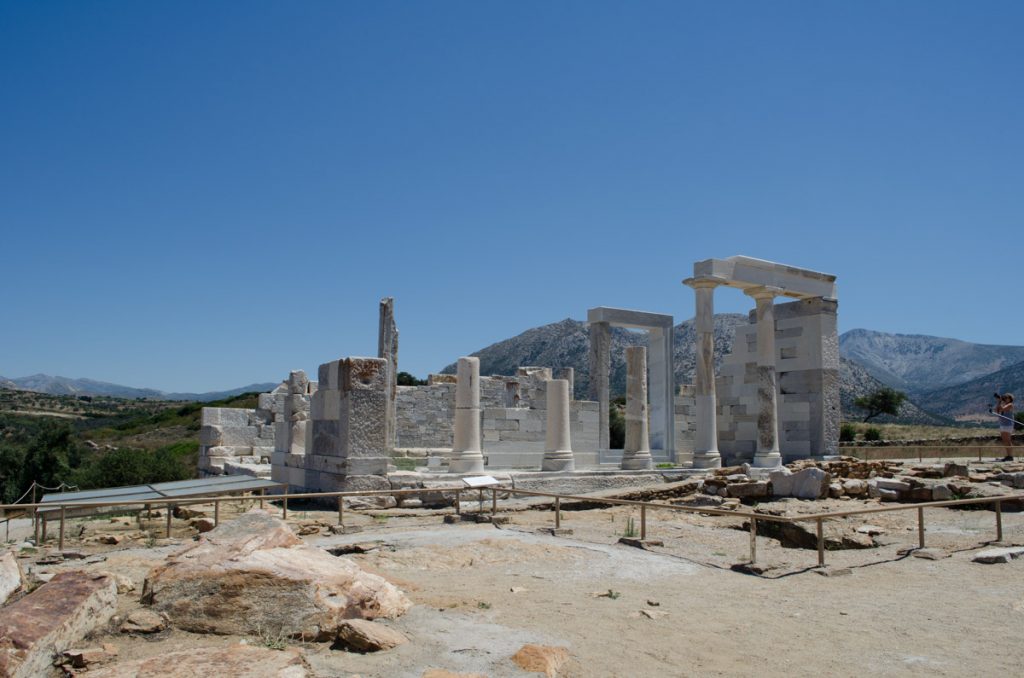May Day in Greece is an ancient and much-loved holiday tradition which marks the celebration of spring. May Day is traditionally celebrated in the countryside, where friends and families gather for this high-point of spring — engaging in flower collection, picnics and fun in the sun.
May Day in Greece: The Customs
The custom of protomagia, translating as the first day of May dates back to the ancient times. The name Maios (May) originated from the Goddess Maia, who is one of the seven stars which make up the constellation called Pleiades and is also the mother of Hermes. The name Maia embodies the concept of growth and nurture — translating as both mother and midwife.
Maia is also commonly referred to as the grandmother of magic who gave birth to Hermes, the messenger of gods and goddesses responsible for bringing the souls of the dead to the underworld. While her son became the god of death, her role is celebrated as the goddess of re-birth who brings everything to life every spring. According to the Greek folklore the holiday commemorates the rebirth and death, celebrating the victory of summer against winter. During this time the Greek land is blessed with lush green grass and blooming, fragrant flowers.
On this day it is said that Demeter, the goddess of harvest and agriculture – reunites with her virgin daughter Persephone, abducted by the god of the underworld Hades, at the Temple of Demeter in Naxos.
May Day around the world: International Worker’s Day
In many countries May 1st is International Worker’s Day and is considered a national public holiday. A holiday which first became popular in the Soviet Union is strongly celebrated until this day in former Soviet-bloc countries as well as other European cities.
In the US the labor movement and May Day was the result of the Haymarket affair which took place in Chicago on 4 May 1886 and is significant as the origin of international May Day observances for workers. A holiday dedicated to the workers is also commonly marked by major strikes which are carried out by workers’ groups and unions.
The May Day celebration in Greece
The May Day celebration in Greece is woven tightly into the overall cultural identity. On this day numerous parades and festivities take place around the country and each municipality will put on a program to commemorate the day.
 The flower tradition dates back to one of the oldest celebrations which was the Anthesteria, held in honor of god of wine Dionysus. The first ancient Greek flower festival took place around the January or February full moon — lasting for three days, it celebrated the beginning of spring. Ancient Greeks would carry flowers to the sanctuaries and temples.
The flower tradition dates back to one of the oldest celebrations which was the Anthesteria, held in honor of god of wine Dionysus. The first ancient Greek flower festival took place around the January or February full moon — lasting for three days, it celebrated the beginning of spring. Ancient Greeks would carry flowers to the sanctuaries and temples.
The May Day celebration was first established in Athens and was later embraced by other Greek cities. During the Roman ruling the tradition continued to thrive but was slightly adapted by the Romans who also believed that flowers represented glory, happiness and health. The beginning of spring is celebrated with the Feast of the Flowers.
On May Day many families decorate their front doors with lavish flowers wreaths which are left hanging until they dry up. The making of wreaths tradition symbolizes brining people close to nature — which is especially important during today’s busy day and age.
Some of the Greek islands are known for their own unique May Day celebrations. On the island of Crete, the city of Heraklion puts on a flower show which has been happening over the course of the past few thousand years. In Corfu the locals follow a tradition called the Mayoxilo (May Wood), which is a cypress trunk, decorated with green branches and yellow daisies. Local men dressed in white walk around the villages holding the Mayoxilo, singing and dancing to songs in honour of May.
Another notable tradition is jumping over fire which takes place on the eve of the 1st of May. As the sun sets, younger and older women gather together performing dancing and singing rituals around the lit fire. Young children, after having wet their hair and clothes, jump over the fire which is a symbolic act of making them immune to sickness and misfortune.
May Day in Greece is a wonderful way to experience the history, customs and traditions of this remarkable country. Have you celebrated May Day in Greece?







